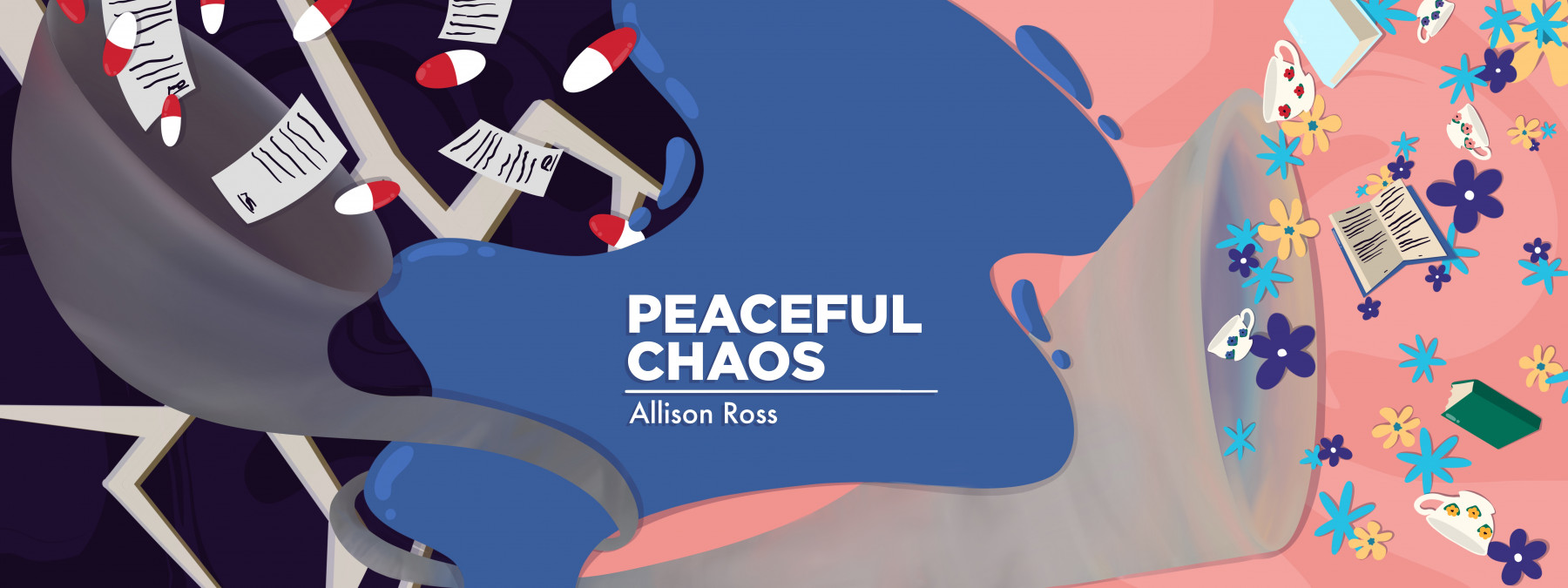Working Through the Question of Alternative Medicine
Written by |

Among many health-support communities, there’s an ongoing discussion regarding pharmaceuticals versus natural healing.
Once we patients have a diagnosis, the next step is to determine a treatment plan. But how do we know what’s the best route to keep our immune systems clean and functioning well, with the lowest risk of disease relapse?
Of course, body chemistries vary widely, as do autoimmune symptoms and severity, so there’s no one-size-fits-all answer. But for most patients, the perfect balance is somewhere in the middle. We need the anti-inflammatory chemical agents to control the disease — but we can also alleviate our symptoms via natural means.
The frustrating reality is that we sometimes must rely on treatments like steroids or chemo just to survive. Vasculitis has only been recognized as a distinctive disease for less than 100 years, so the technology surrounding it hasn’t advanced to the point that we can take risks — especially if our condition manifests in a more severe form.
“Have you tried [fill in the blank]?”
If I had a dime for every time I was asked this by a well-meaning friend, I would never see medical debt! Usually the suggestion has to do with what I ingest on a daily basis, such as adhering to an anti-inflammatory diet or eating strictly organic foods.
Of course, the questioner is only trying to help. I can’t fault them for not understanding the position I’m in. I’ve spent years living with and researching my condition, and I can’t expect someone else to know that a change in diet or lifestyle patterns is no guarantee of improved autoimmune health.
It’s frustrating and exhausting to have to defend myself on treatment decisions. It feels like an accusation, as if I haven’t been trying hard enough to manage the disease. Worse, it’s offensive: Does someone questioning my (really, my doctor’s) methods really believe that I (we) haven’t exhausted all possible options?
Homeopathic medicines, acupuncture, massage, aromatherapy, and shifts in diet or exercise are some of the more commonly known alternative options. Treatments that get a bad rap for being off the beaten path may hold some merit if used correctly and adhered to for long enough to see results.
I’m tempted to give everything the benefit of the doubt until proven ineffective — as long as I’m tending to my immediate needs and not risking my health unnecessarily. After all, humans handled disease with care for thousands of years before we knew of things like prednisone, azathioprine, or methotrexate. I’d like to think it’s possible to strike a good balance, and a trusted physician can help me make those decisions with knowledgeable guidance.
If someone opts to follow their doctor’s orders and go the pharmaceutical route, it could be expensive and come with possible drug side effects. If instead they experiment with alternative treatments, the sacrifice is one of time and energy. During the process, it’s not guaranteed that any specific strategy will work.
The reality is that in some cases, vasculitis patients simply don’t have the luxury of time. There may be danger that lies in what kind of organ damage might be done. Had I tried to explore alternative methods during my initial onset as a teen, I wouldn’t have survived. The disease had already progressed so far that it was dangerous not to plunge ahead with chemo and steroids — despite that each of them came with harmful side effects.
Though a strict diet is no guarantee of improved autoimmune health, it certainly helps in many cases. We have reliable research that says eliminating things like sugar and processed foods is an enormous boon to a balanced immune system.
Again, the restriction is simply one of time. If the body is inflamed to a certain point, there’s a higher risk in letting it go any longer without taking drastic action. So any changes we make need to be done gradually, once the immediate danger is under control.
There’s never any harm in researching alternative treatment methods. Staying curious and optimistic helps boost our outlook. At a minimum, it may let us feel more in control of a disease that can be entirely unpredictable. If we keep an open mind, we may find add-ons to our current treatment plan that support it in a healthful way without destabilizing our immediate condition.
Note: ANCA Vasculitis News is strictly a news and information website about the disease. It does not provide medical advice, diagnosis, or treatment. This content is not intended to be a substitute for professional medical advice, diagnosis, or treatment. Always seek the advice of your physician or other qualified health provider with any questions you may have regarding a medical condition. Never disregard professional medical advice or delay in seeking it because of something you have read on this website. The opinions expressed in this column are not those of ANCA Vasculitis News or its parent company, Bionews, and are intended to spark discussion about issues pertaining to ANCA vasculitis.







Leave a comment
Fill in the required fields to post. Your email address will not be published.